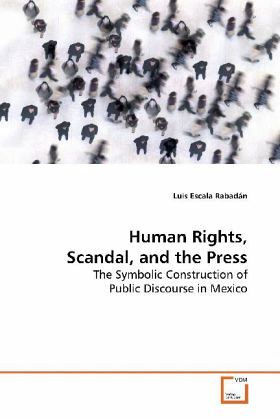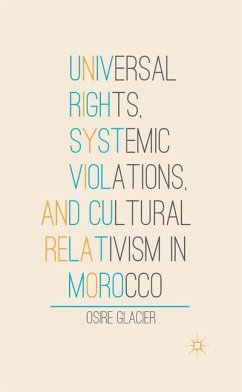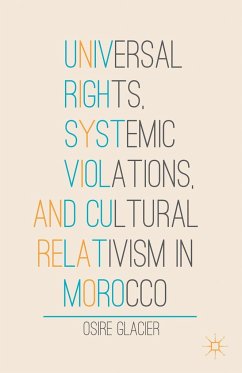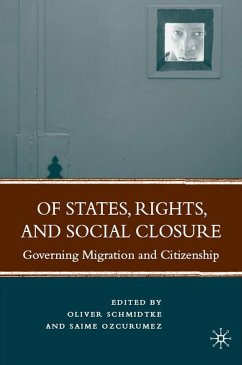
Human Rights, Scandal, and the Press
The Symbolic Construction of Public Discourse in Mexico
Versandkostenfrei!
Versandfertig in 6-10 Tagen
52,99 €
inkl. MwSt.

PAYBACK Punkte
26 °P sammeln!
How does the concept of human rights become part of the public discourse of a nation? In this book, the author argues that the role of the print media and more specifically, the symbolic work of media scandals is a pivotal yet underestimated aspect to explain the rise and consolidation of human rights as a public discourse. This book relates the case of Mexico to demonstrate this importance. Mexico s political system has taken major steps toward the achievement of democracy, namely the rise of more independent media. Based on three human rights scandals between 1978 and 1996, and using text in...
How does the concept of human rights become part of
the public discourse of a nation? In this book, the
author argues that the role of the print media and
more specifically, the symbolic work of media
scandals is a pivotal yet underestimated aspect to
explain the rise and consolidation of human rights
as a public discourse. This book relates the case of
Mexico to demonstrate this importance. Mexico s
political system has taken major steps toward the
achievement of democracy, namely the rise of more
independent media. Based on three human rights
scandals between 1978 and 1996, and using text
interpretation, this study analyzes the news
articles related to each crisis in different
mainstream newspapers. The book concludes that
despite other significant explanations, the symbolic
frameworks that emerged in the course of each of
these critical events, forged by an increasingly
independent press, were key in the rise and
consolidation of human rights as a discourse in
Mexico s public sphere, which in turn shows the
significance of symbolization and its eventual
social effects.
the public discourse of a nation? In this book, the
author argues that the role of the print media and
more specifically, the symbolic work of media
scandals is a pivotal yet underestimated aspect to
explain the rise and consolidation of human rights
as a public discourse. This book relates the case of
Mexico to demonstrate this importance. Mexico s
political system has taken major steps toward the
achievement of democracy, namely the rise of more
independent media. Based on three human rights
scandals between 1978 and 1996, and using text
interpretation, this study analyzes the news
articles related to each crisis in different
mainstream newspapers. The book concludes that
despite other significant explanations, the symbolic
frameworks that emerged in the course of each of
these critical events, forged by an increasingly
independent press, were key in the rise and
consolidation of human rights as a discourse in
Mexico s public sphere, which in turn shows the
significance of symbolization and its eventual
social effects.












